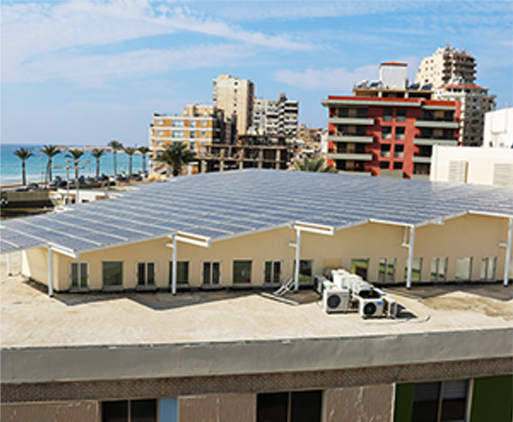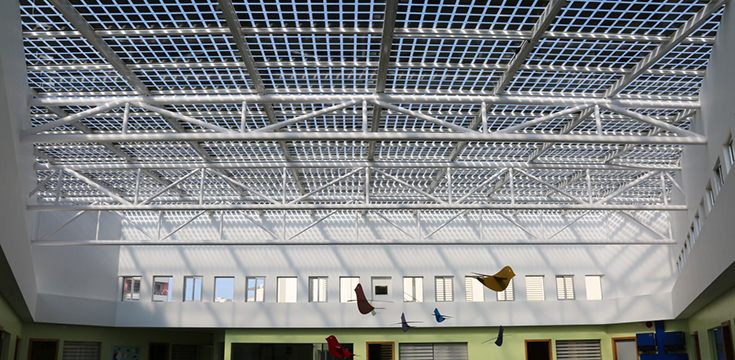
Close

Photovoltaic system within the Kindergarten building: a newly introduced component aiming at creating an enabling learning environment for the children in South Lebanon.
This component is the last stage of a refurbishment project which started in the beginning of 2016 and scheduled for completion before the end of this summer. The concept has been identified extremely crucial in order to promote the use of renewable resources of energy in the surrounding communities.

Imam Sadr Foundation is investing in its kindergarten building to realize several objectives:
– Enable the context of quality education for all, including fostering social inclusion and citizenship;
– Avail an inviting premises with up-to-date conditions of health, comfort, safety, and warmness;
– Offer a pilot and exemplary model of green school, by producing 90 amperes via photovoltaic system.
It was found that quality education is the key to progress. This apparent postulate undermines arguments as to the philosophy, content and methods of education. In many occasions, Imam Sadr Foundation demonstrated the ability to mobilize several partners at a time, and to reach vast number of beneficiaries. Its scope and expansion prove the operational capacity of our logistics and enhance the credibility among local communities.
• Direct beneficiaries as preschool children: 300 (growing from baseline of 90 and attaining full capacity after 3 years, in addition to 25 as staff;
• Direct beneficiaries such as orphanage and primary school: 800 students who would either regain the places otherwise temporarily occupied by their peers in kindergarten, or benefit from the renovated facilities in the kindergarten building itself
• Indirect beneficiaries constitute the parents, local authorities, other schools and visitors who might share the experience of environmentally-friendly initiatives.
The plan is to regain the maximum capacity of 300 within 3 years. The constituency will be served by 25 staff. However, since the basement floor of the building is composed of music hall, library, computer laboratory, audio-visual facilities, sports hall, arts, etc. The entire populace of the compound will restore the original functions of their premises and have access to the refurbished halls and facilities.
More importantly, the project is designed to communicate a message in green terms, especially the power generation by clean energy and the optimal use of natural resources such as lighting and temperature conservation. The expanding scope of action called for the extension of built premises in the compound (schools, dormitories, cafeteria, administration…), not to mention our centers in Beirut and the local development and social services centers in rural areas. Overall, these facilities are attended every day by 2,000 individuals (students, teachers, patients, doctors, visitors). Such daily human activity constitutes a free platform and favorable testing ground to disseminate attitudinal transformation and encourage behavioral change which will immediately spread to households, indeed to the surrounding local communities, to induce a meaningful and comprehensive social change.
The manufacturer warranty is as follow: 30 years for solar panels; 20 years for power output @ 90% ; 5 years for SMA inverters and 1 year for all other parts.
In addition, this pilot project fits within our strategic policies to adopt green and clean solutions, which means that directors and employees at ISF are committed to share a green culture and promote sustainable solutions, including operational measures such as maintaining and promoting innovative energetic sources.
This initiative is expected to create a boom in the use of efficient electrical energy, at least in southern Lebanon, the site of immediate impact for ISF’s projects, campaigns, and initiatives. Households, social actors, and municipalities should tend to implement the proposed solar system when it becomes available at affordable prices. Auxiliary activities will contribute to and reinforce this goal: raising awareness on the risks of traditional generators, posters reminding people to check light switches, and the use of sensors and regulatory devices, etc…
Sustainability means that social, economic and environmental needs are promoted. Our initiative is a bold attempt to create some lights that dispels the darkness of hopelessness. The pillars are inclusiveness, empowerment, and accountability.


